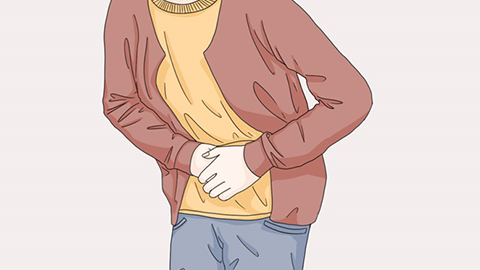The little girl has been on her period for half a month and it still hasn't stopped—what should be done?
Having a period usually refers to menstruation. Generally, if a young girl has had her period for half a month and it still hasn't stopped, it might be caused by factors such as immature ovarian function, significant emotional fluctuations, hormonal imbalances, endometritis, or uterine polyps. Patients can choose from general treatment, medication, or surgical treatment options to improve the condition. Specific explanations are as follows:
1. Immature ovarian function
For a period of time after a girl's first menstrual period, her ovarian function has not fully developed and matured. The regulatory function of the hypothalamic-pituitary-ovarian axis is unstable, leading to irregular secretion of estrogen and progesterone. As a result, the shedding and repair of the endometrium become asynchronous, causing menstruation to last more than half a month. Parents should inform the girl that this is a normal physiological process and help reduce her psychological burden.
2. Significant emotional fluctuations
If a girl remains in a state of tension, anxiety, or high stress for a prolonged period, it may affect the function of the hypothalamic-pituitary-ovarian axis, causing hormonal imbalance and menstrual cycle disturbances, which can lead to menstruation lasting more than half a month. Parents should pay attention to the girl's emotional changes, communicate with her frequently, and help her relieve stress.

3. Hormonal imbalance
Hormonal imbalance can lead to hormonal level disorders in the body. Excessive estrogen secretion or insufficient progesterone may cause continuous proliferation of the endometrium without normal shedding and repair, resulting in menstruation lasting more than half a month, possibly accompanied by symptoms such as acne on the face. Treatment should be conducted under a doctor's guidance, using medications like progesterone soft capsules, dydrogesterone tablets, or estradiol valerate tablets to regulate hormone levels.
4. Endometritis
Endometritis is an inflammation of the endometrium caused by infection with pathogens such as bacteria. The inflammation affects the normal repair of the endometrium, leading to irregular shedding of the endometrium, prolonged menstrual duration, and possibly symptoms such as lower abdominal pain and increased vaginal discharge. Antibiotic treatment should be administered under a doctor's guidance, such as cefixime granules, amoxicillin-clavulanate potassium dry suspension, or azithromycin dry suspension.
5. Uterine polyps
Uterine polyps can affect the normal contraction and repair of the endometrium, leading to incomplete shedding of the endometrium and causing menstruation to last more than half a month, possibly accompanied by increased menstrual bleeding. Medical evaluation under a doctor's guidance is necessary to determine the size and location of the polyps. If the polyps are small, observation and regular follow-up may be sufficient; if the polyps are large or symptoms are significant, surgical removal should be performed according to medical advice.
In daily life, ensure the girl maintains good personal hygiene habits, frequently changes sanitary pads to avoid infection, follows a light diet avoiding excessive consumption of spicy and irritating foods, and engages in appropriate physical exercise to strengthen her constitution.




